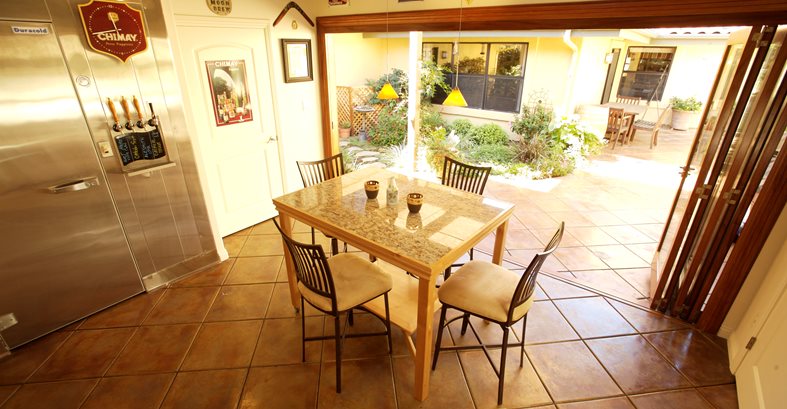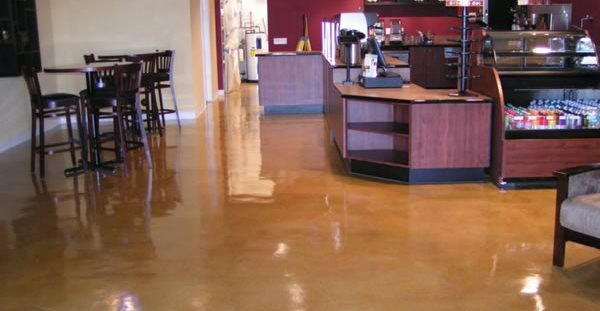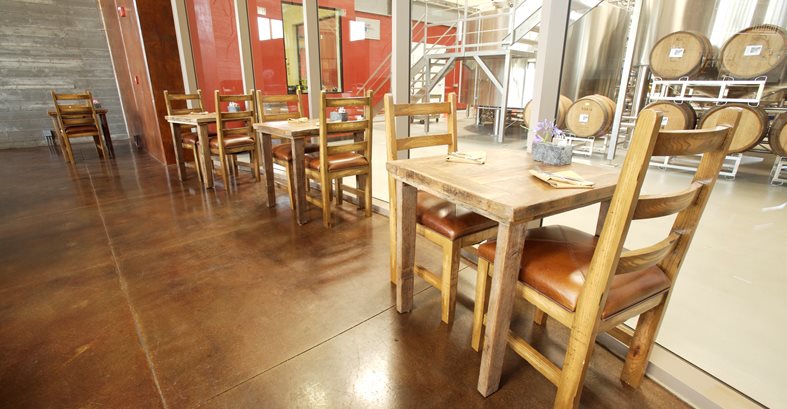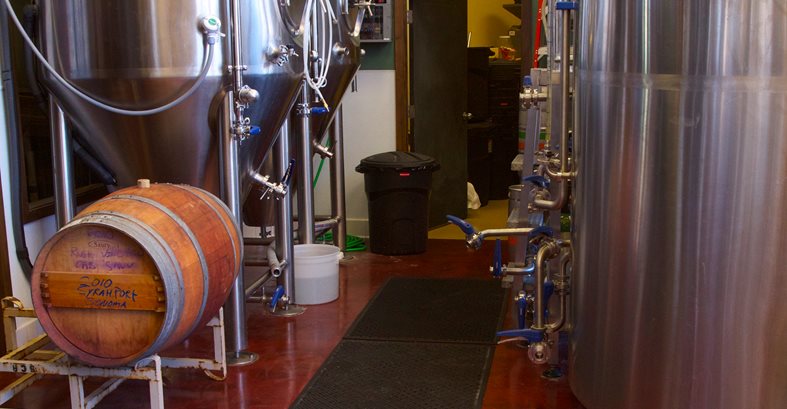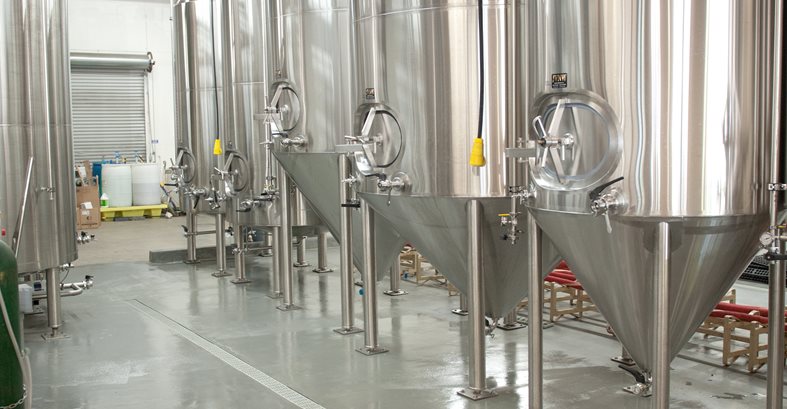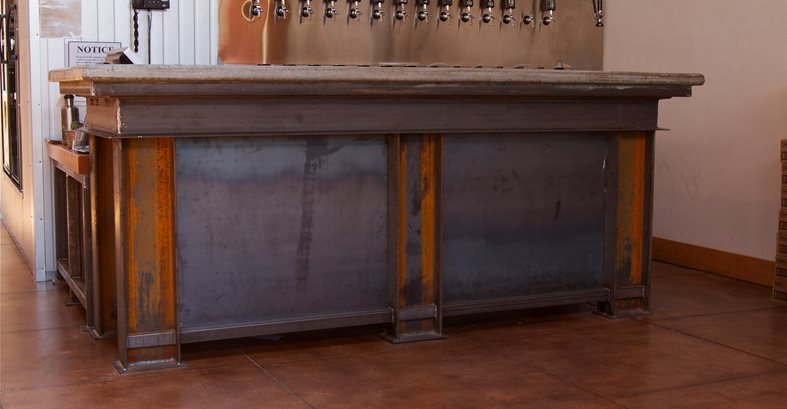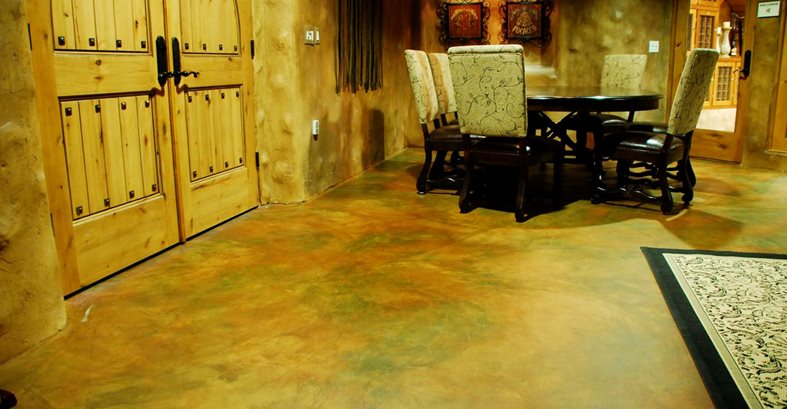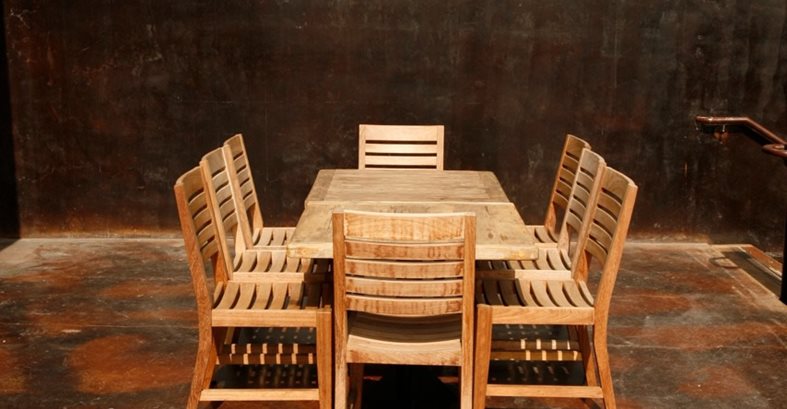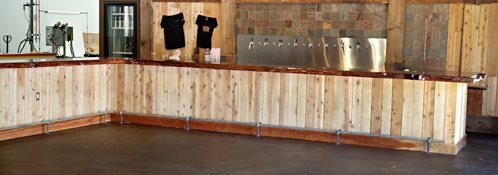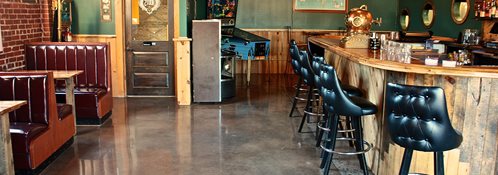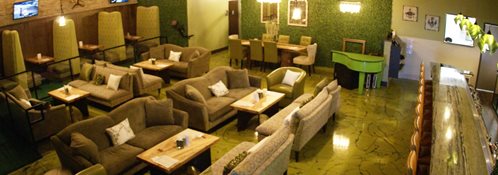Why Choose Concrete for a Brewery
- Durable in high-traffic locations
- Versatile design options - limitless choice of colors and textures
- Anti-slip coatings can be applied to the surface
- Resistant to stains when sealed with a polyurethane
- Easier to keep clean than tile and alternative flooring materials
- Sustainable - restore the concrete you already have, earn LEED points
Chances are the next time you visit your local watering hole, whether it’s a brewery or wine bistro, you’ll encounter concrete flooring rather than the typical tile or ceramic floor often found in these facilities. You’ll find them not only behind the scenes where the beer is being made, but also in the tasting rooms where it’s being consumed. Concrete floors are being used more often in these environments because of their performance attributes as well as their design versatility. The projects shown here, most of which were completed by Life Deck Coating Installations, San Diego, showcase the variety of looks that can be achieved, ranging from utilitarian to highly decorative depending on the type of treatment applied.
As you might expect, floors in these facilities are subject to frequent spills and staining, as well as heavy foot traffic. Concrete protected by a high-performance coating is virtually impervious to these wear conditions. “Caustic chemicals and thermal shock are always a concern in these environments, so they require a much more durable system that is anti-slip as well,” says Todd Seabroch, project consultant at Life Deck, which exclusively uses products from Westcoat Specialty Coating Systems.
Paul Koury, president of Westcoat, recommends the use of a heavy-duty urethane cement coating in brewing rooms. “This is the most popular product going in breweries. It incorporates cement in a urethane polymer and is very chemical resistant, very durable. One of its key attributes is that it handles thermal shock and won’t pop off if hot water is spilled. Most standard epoxies will melt at 130 to 140 degrees,” he says. Koury also warns against using acrylic sealers in brewing facilities because they offer no chemical resistance and they tend to be porous, allowing bacteria to penetrate.
In tasting rooms and bistros where customers are being served, the appearance of the floor is as important as its durability and stain resistance. In these areas, a popular treatment for concrete floors is the use of stains or dyes protected by a polyurethane sealer. “Most tasting rooms are done in stained concrete that has been processed by grinding the floor with a planetary grinder, mainly because of the warm color and patina that it offers. The processed and stained concrete has an inviting organic, natural feel to it,” says Seaboch.
Koury stresses that proper surface preparation is the key to good performance. “The winning combination for a floor that is going to last is to properly sand and grind the surface first. This opens up the concrete and allows the stain and sealer to penetrate. The color goes deep and the sealer goes deep, which makes the treatment longer lasting,” he says.
More brewery owners are also choosing concrete floors because they are easier to keep clean than tile and alternative flooring materials, since they have no grout lines that can trap dirt and bacteria. “Concrete floor maintenance usually entails mopping the floors with mild degreasers and periodically waxing to keep up the sheen or maintain traffic wear patterns,” says Seaboch.
Koury says that polyurethane sealers resist stains and can easily be cleaned with a low pH cleaner, even just vinegar and water. Harsh chemicals are usually not needed.
Concrete is a greener flooring option as well, notes Koury, because you can restore and save the existing concrete instead of repouring or covering it with another material that won’t hold up.
Concrete coating installer
Life Deck Coating Installations, San DiegoFind a concrete floor contractor near me
Westcoat products used
Metallic epoxy: Liquid Dazzle
Satin polyurethane: EC-96
Clear epoxy sealer: EC-32
Concrete stains: SC-30 acid stain and SC-35 water-based stain
Concrete dye: Fast Stain SC-36
Topcoats: Urethane cement
